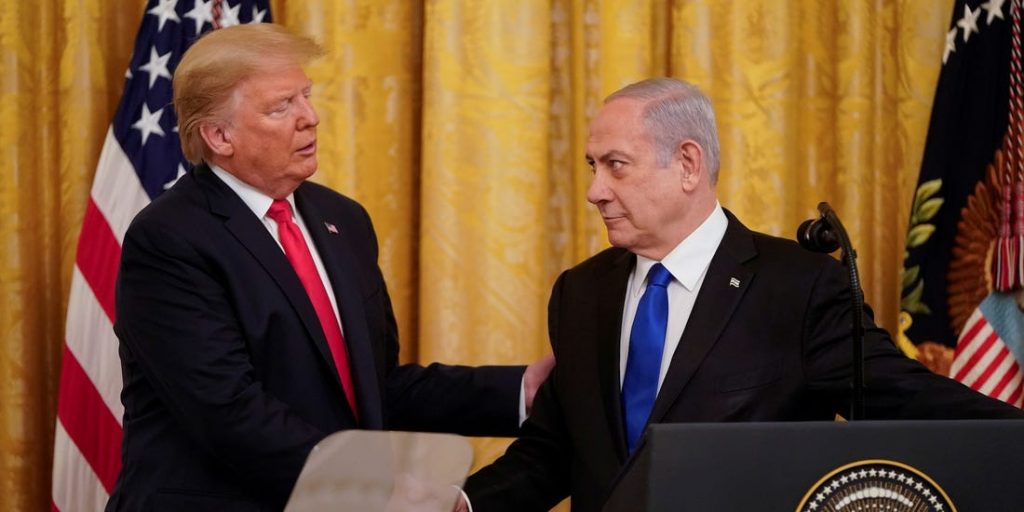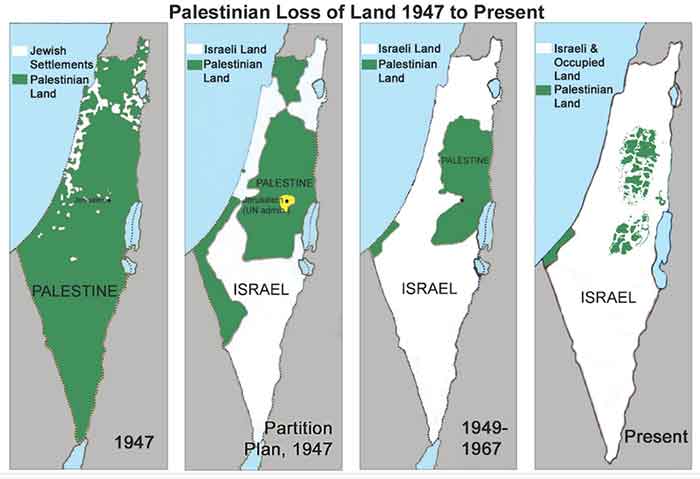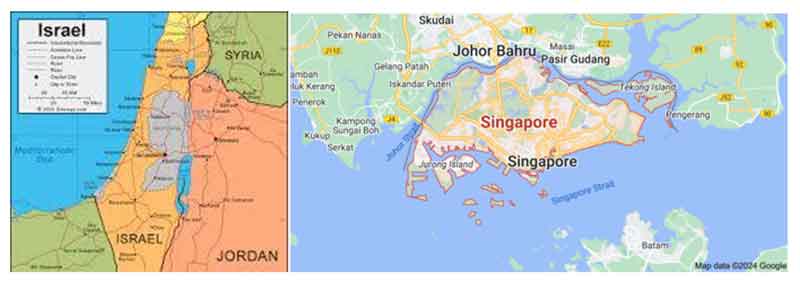
President Donald Trump on Tuesday said five or six more countries are ready to make peace with Israel, Times of Israel reported. However, he did not name those countries.
Shortly before the signing of the Abraham Accords between Israel, the United Arab Emirates and Bahrain, Trump said, “We’re very far down the road with about five additional countries… Frankly, I think we could have had them here today.”
“We’ll have at least five or six countries coming along very quickly… They want to see peace. They’ve been fighting for a long time…. They’re warring countries but they’re tired of fighting.. You’re going to see a lot of very great activity. It’s going to be peace in the Middle East.”
Answering questions about what Israel gets from the new deals, Trump said, “We’ll be signing up [other] nations… These are very strong agreements. This is serious peace… What Israel gets, the most important thing Israel gets, is peace.”
Trump also quoted as saying: “I really believe Iran wants to make a deal.” He advised Tehran to wait until after the elections, however. If “sleepy Joe Biden” were to win the elections, he said Iran and especially China “would own the United States.”
He said he’d spoken with the king of Saudi Arabia, and “positive things will happen… This is peace in the Middle East without blood all over the sand.”
Israeli Prime Minister Netanyahu was quoted as saying: “Israel doesn’t feel isolated at all. It’s enjoying the greatest diplomatic triumph of its history.” Those who are feeling isolated, says Netanyahu, “are the tyrants of Tehran.”
Israel Hayom
Meanwhile, the Israeli newspaper Israel Hayom Tuesday quoted British-Pakistani analyst Noor Dahri as saying that Oman, Sudan, Morocco, and Saudi Arabia are likely to follow UAE and Bahrain and seek rapprochement with Israel sooner than believed.
Analyst Noor Dahri, founder and executive director of Islamic Theology of Counter Terrorism, a UK-based think tank, told Israel Hayom Monday that many other Arab countries have taken notice of the regional winds of change, and may follow in Abu Dhabi and Manama’s footsteps sooner that one may believe.
“The peace agreements of the UAE and Bahrain with Israel are just a door [for them] for opening further diplomatic, trade and strategic relations with the Israel. There are many countries that are awaiting their term to join the agreement, such as Oman, Sudan, Morocco and Saudi Arabia,” he said.
However, a diplomat in the Gulf was quoted Tuesday by Reuters as saying that for Saudi Arabia, the issue is more related to what he called its religious position as the leader of the Muslim world, and that a formal deal with Israel would take time and is unlikely to happen while King Salman is still in power.
“Any normalization by Saudi will open doors for Iran, Qatar and Turkey to call for internationalizing the two holy mosques,” he said, referring to periodic calls by critics of Riyadh to have Mecca and Medina placed under international supervision.
A big deal but not a peace deal
Fred Kaplan of the Slate Tuesday said It is a big deal not a peace deal because Israel has not been at war with either of the two Gulf Arab states. In fact, for years now, it has quietly been conducting trade and backroom diplomacy with both.”
However, “normalized relations”—which the accord establishes— marks a huge step forward: the creation of embassies, commercial air routes, tourism, security and intelligence ties, and access to Israel’s high-technology products and marketplace.
Bahrain and the UAE, tiny but oil-rich monarchies, bring to four the number of Arab states that have formal ties with Israel. (The others are Egypt and Jordan, since 1979 and 1994, respectively.) But the accord also holds the promise of more to come, especially since Bahrain would not have signed the deal without the explicit consent of the Saudi royal family, Kaplan said adding:
“As Malcolm Kerr observed more than a half century ago in his classic book, The Arab Cold War, the Israeli-Palestinian conflict has never been as central to Arab leaders’ concerns as they have claimed. The bogeyman of Israel has served mainly as a distraction from their own internal problems—and as a common enemy to paper over sectarian tensions.
“The losers in this deal are the Palestinians. For decades, most Arab leaders refused to recognize Israel until Israel allowed the creation of—and made peace with—an independent Palestinian state. The UAE and Bahrain are now saying they don’t really care about the Palestinians.”
Palestinians groups unify
Palestinians unify as Bahrain and UAE ‘normalize’ Israel relations. Last Saturday, Palestinian groups led by Hamas and Fatah agreed on a “unified field leadership” comprising all factions that will lead “comprehensive popular resistance” against the Israeli occupation.
The formation of the joint leadership group and progress in the intra-Palestinian unity talks came after a long-awaited September 3 meeting among Palestinian Authority President Mahmoud Abbas, Hamas’s Ismail Haniya, Islamic Jihad’s chief Ziyad al-Nakhala, and the leaders of various Palestinian entities. Gatherings were held in Ramallah in the occupied West Bank and Beirut, Lebanon.
Hamas and other Palestinian parties have for years demanded that such a meeting take place, but Abbas always rejected the move, calling on Hamas to honour previous unity pacts first.
But with the Palestinian cause lately facing so many challenges – the most important being the normalization between Arab countries and Israel – Abbas agreed to hold discussions.
Meanwhile, protests erupted in Palestine, Bahrain and UAE over signing of the deal. Thousands of protesters took to streets shouting anti-US and Anti-Israel slogans. The peace pact has been widely criticized mostly by heads of Muslim states who see it as a conspiracy to create rifts and harm unity among the Muslim world.
Abdus Sattar Ghazali is the Chief Editor of the Journal of America (www.journalofamerica.net) email: asghazali2022 (@) gmail.com
SIGN UP FOR COUNTERCURRENTS DAILY NEWSLETTER













































